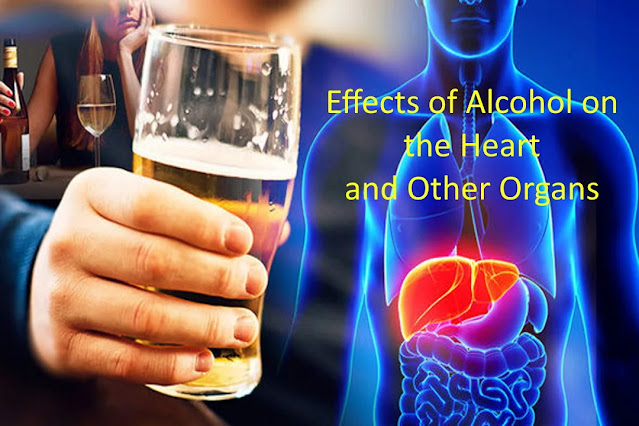Can Excessive Alcohol Consumption Cause Heart Attacks?
A heart attack is a medical emergency caused by an interruption of blood flow to the heart. Excessive alcohol consumption is associated with an increased risk of a heart attack.
About every 40 seconds he has one heart attack in the US. People with heart disease have an increased risk of a heart attack. Alcoholic cardiomyopathy is a type of heart disease caused by excessive alcohol consumption.
In addition, frequent heavy drinking can damage heart structure and function before symptoms appear.
This article explains how heavy drinking damages the heart and causes other complications. It also explains how to recover from an alcohol-related heart attack and whether drinking alcohol is safe for people with heart disease. , also describes the risk factors.
Can Heavy Drinking Cause a Heart Attack?
Heavy drinking causes high blood pressure and increases the risk of a heart attack. The Centers for Disease Control and Prevention (CDC) defines heavy drinking as drinking 8 or more times a week for women and 15 or more times a week for men.
Also, excessive alcohol consumption is defined as 4 or more drinks per day for women and 5 or more drinks per day for men.
Short-term effects of excessive alcohol consumption
Excessive alcohol intake has many short-time period effects, including:
- Injuries: Falls, drowning, burns, and car accidents are more common after drinking alcohol.
- Violent Behavior: Excessive drinking increases the risk of violent behavior that can lead to injury or assault.
- Alcohol Poisoning: This medical emergency can occur if you have high levels of alcohol in your blood.
- Pregnancy Risk: Pregnant women may experience miscarriage, stillbirth, or fetal alcohol spectrum disorders.
Effects of Alcohol on the Heart and Other Organs
The American Heart Association (AHA) states that excessive alcohol consumption can raise blood triglyceride levels.
High triglyceride levels and too much low-density lipoprotein cholesterol, or too little high-density lipoprotein cholesterol, can lead to fatty deposits in arterial walls. This will increase the hazard of coronary heart assault and stroke.
According to the National Institute on Alcohol Abuse and Alcoholism, alcohol can affect your heart in the following ways:
- Alcoholic cardiomyopathy: This form of heart disease enlarges and deforms the heart, weakening the muscles and preventing it from pumping blood efficiently.
- Cardiac arrhythmias: Arrhythmias occur when the heart beats too fast, too slow, or irregularly.
- Stroke: A stroke occurs when blood does not flow properly to the brain, and brain cells die.
- Hypertension or hypertension: This refers to high pressure within blood vessels. It can occur when blood vessels are narrowed or when there is more fluid in the body than expected.
- Interactions with heart medications: For example, some blood thinners can cause gastrointestinal bleeding.
Because alcohol is high in calories, drinking can lead to weight gain and high blood pressure. High blood pressure is one of the predominant chance elements for coronary heart assault and stroke.
Obesity is also a risk factor.
Other parts of the body that can be damaged by excessive drinking include the liver, kidneys, pancreas, and immune system. Recovering from an alcohol-related heart attack
After a heart attack, a person may need to make lifestyle changes such as:
- eat nutritious meals
- Increased physical activity
- I quit smoking
- stress management
- maintain a healthy weight
Doctors also recommend joining a cardiac rehabilitation program after a heart attack. The monitoring program includes:
- physical activity
- Education about a healthy lifestyle
- Counseling for improving mental health
Most people need to take medication after having a heart attack. Doctors prescribe drugs based on the patient's blood pressure while in the hospital. However, drugs may not work if people start drinking heavily after a heart attack.
A doctor may also advise a person to quit alcohol or suggest a safe amount to drink. In addition, some people with alcoholic cardiomyopathy may need a pacemaker or other surgery.
Can heart patients drink alcohol?
Heart patients can drink alcohol, but it may increase the risk of complications.
People with arrhythmia-causing heart disease are more likely to develop an arrhythmia if they drink alcohol, according to the British Heart Foundation in the UK. Additionally, people with hereditary heart disease are particularly at risk.
People who have already experienced an arrhythmia are more likely to experience it again. Several observational studies suggest that moderate alcohol consumption may be associated with a reduced risk of heart disease. 1 drink a day, up to 2 drinks for men) may be a mechanism to calm stress signals in the brain and reduce risk.
Stopping drinking or drinking less can lower your blood pressure and reduce your risk of a heart attack.
However, medical experts agree that alcohol's drawbacks far outweigh its supposed benefits.
Risk factors for heart disease
People with heart disease risk factors should limit their alcohol intake.
Risk factors include:
- high blood pressure
- high cholesterol levels
- Diabetes
- Obesity
- family history of heart disease
- smoking
- Lack of exercise
- Do not eat nutritious meals
When should I see a doctor?
People who regularly drink more alcohol than recommended by experts should talk to their doctor about reducing their alcohol intake. People with risk factors for heart disease should be especially careful.
People who suspect a heart attack should see a doctor immediately.
Heart attack symptoms include:
- chest pain
- difficulty breathing
- dizzy
- Nausea
- Sweat
Pain in one or both arms, back, neck, jaw, or stomach.
Conclusion
Excessive alcohol consumption over a long period of time can damage the structure and function of the heart and increase the risk of heart attack and heart failure. Excessive alcohol consumption can lead to complications such as high blood pressure, arrhythmias, and stroke.
Therefore, people with heart disease or risk factors should quit drinking or limit their alcohol consumption to reduce the risk of a heart attack.





.webp)



Social Plugin